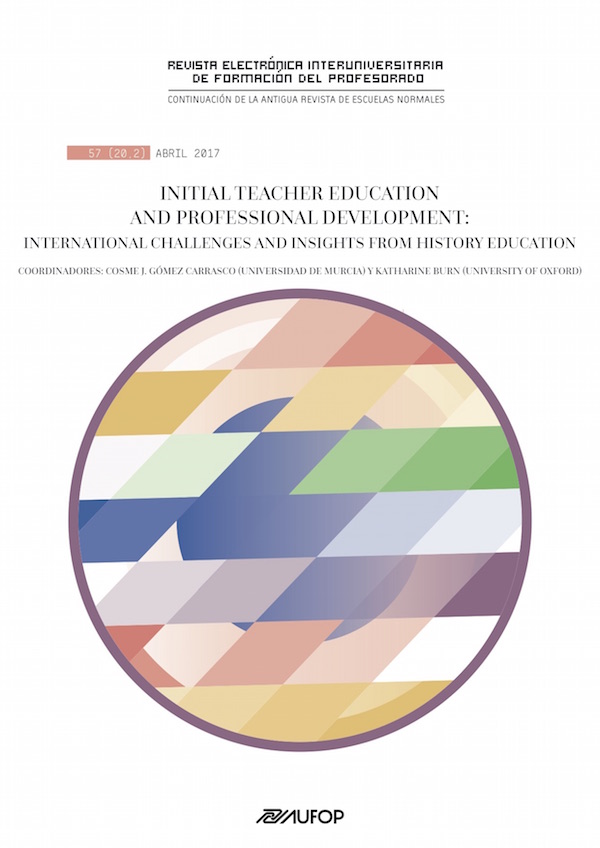The attitudes and perceptions of beginning teachers in relation to teaching controversial and sensitive issues in the history classroom
Abstract
This paper reports on research into the attitudes and perceptions of beginning history teachers in relation to teaching controversial and sensitive issues. In 2007 the UK Department of Education and Skills, alongside the Historical Association, published a report into the teaching of emotive and controversial issues in history which suggested avoidance of some topics by some teachers. Initial research was carried out with 32 beginning history teachers to explore their attitudes to teaching controversial issues in the history classroom. Ten years later, the research was repeated with a further cohort to explore whether attitudes had changed. Findings showed an enthusiastic, almost moralistic group of beginning teachers, committed to sharing a wide range of views with their young audience. The beginning teachers were remarkably confident about teaching controversial and sensitive issues. The area where beginning teachers lacked confidence was in dealing with parents who disagreed with their approach to teaching a certain topic. Almost all the beginning teachers thought it was appropriate for history teachers to teach topics in a way that might conflict with family or cultural values. New concerns have emerged for some beginning teachers over how to teach the history of migration in a sensitive and appropriate way.
Downloads
-
Abstract1435
-
PDF1028
Los artículos que se publican en esta revista están sujetos a los siguientes términos:
1. El Departamento de Métodos de Investigación y Diagnóstico en Educación de la Universidad de Murcia (España), junto con el Servicio de Publicaciones de la Universitdad de Murcia (Editum) son los editores de la revista REIFOP y conserva los derechos patrimoniales (copyright) de los artículos publicados, permitiendo la reutilización de las mismos bajo la licencia de uso indicada en el punto 2.
2. Las obras se publican en la edición electrónica de la revista bajo una licencia Creative Commons Reconocimiento-NoComercial-SinObraDerivada 3.0 España (texto legal). Se pueden copiar, usar, difundir, transmitir y exponer públicamente, siempre que: i) se cite la autoría y la fuente original de su publicación (revista, editores y URL de la obra); ii) no se usen para fines comerciales; iii) se mencione la existencia y especificaciones de esta licencia de uso.
3. Condiciones de auto-archivo. Se permite y se anima a los autores a difundir electrónicamente las versiones pre-print (versión antes de ser evaluada) y/o post-print (versión evaluada y aceptada para su publicación) de sus obras antes de su publicación, ya que favorece su circulación y difusión más temprana y con ello un posible aumento en su citación y alcance entre la comunidad académica. Color RoMEO: verde.















